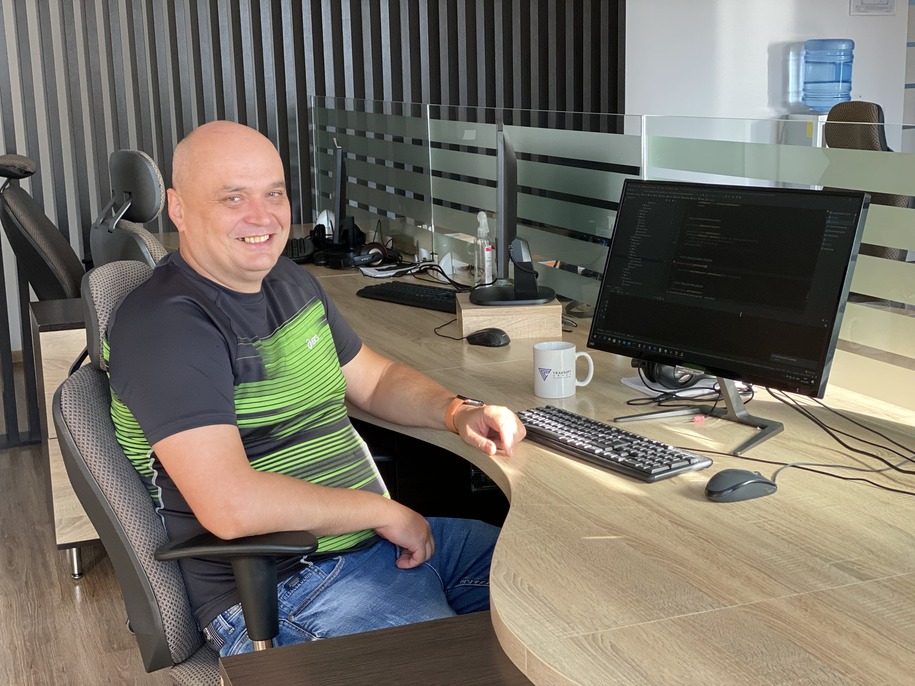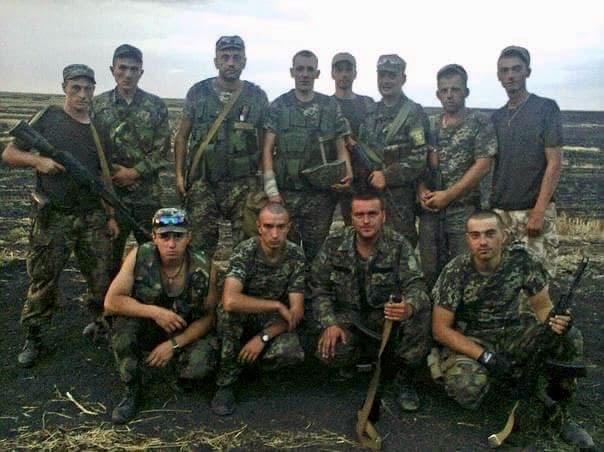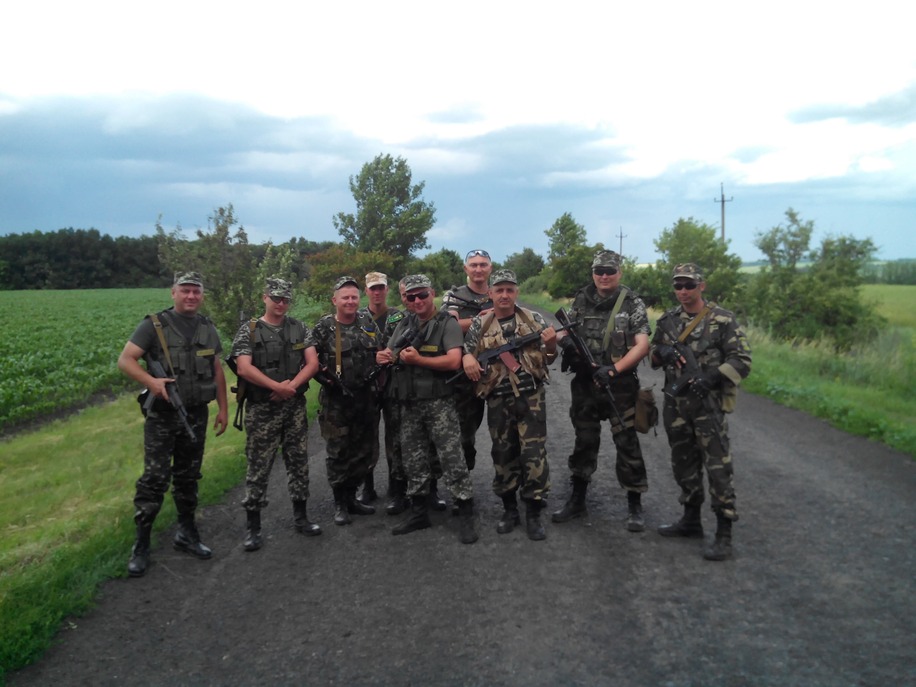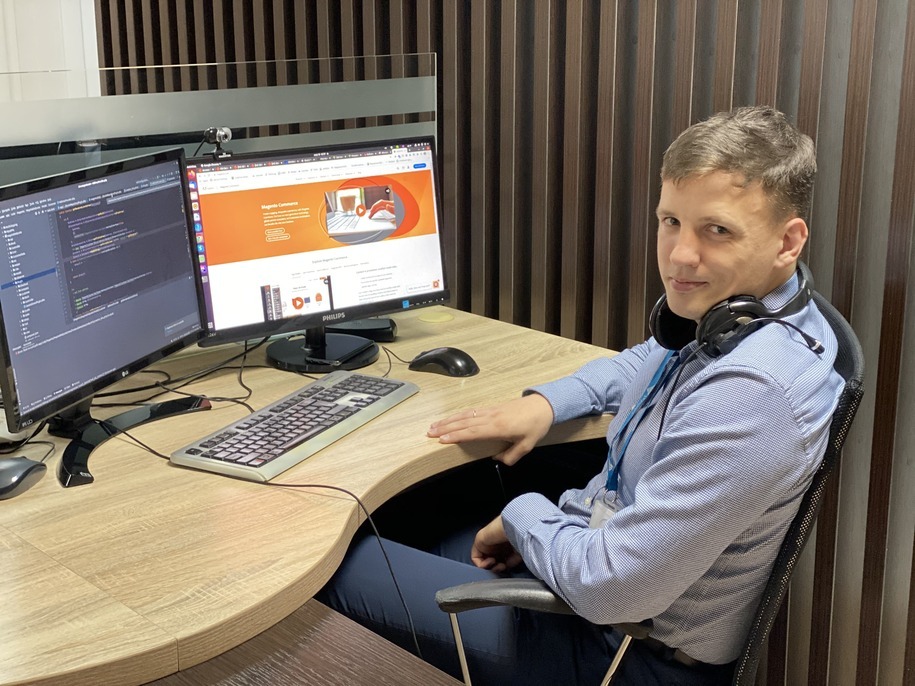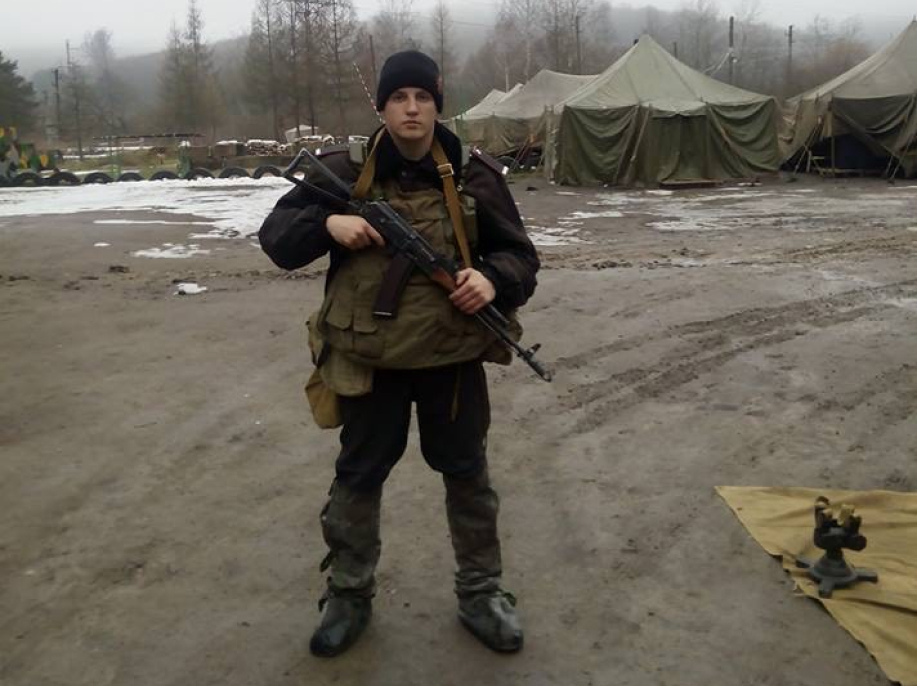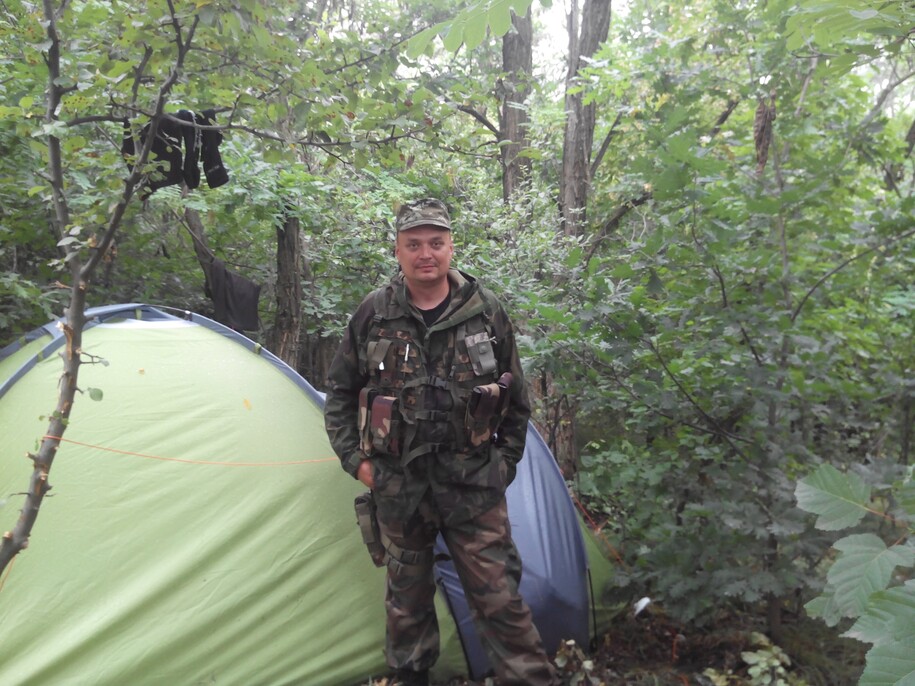Maksym Kozlov and Stanislav Kozar, programmers of an IT company from Mukachevo, told Ukrinform this story of successful socialization. Both are related to the armed defense of the Motherland: Maksym is a border guard, Stanislav is a conscript of the National Guard. Both were in anti-terrorist operation and saw a lot. But we are talking not only about the events of that time, but also about one of the areas where the military people with endurance and discipline, can find themselves after military service. The guys convince that every ATO participant can become an IT person - the main thing here is not higher mathematics, but the desire to move forward.
""WHEN I RETURNED FROM THE FACILITY TO DONETSK - THE RUSSIAN FLAG WAS ALREADY HANGING ON THE MILITARY BASE""
We start the conversation with men, of course, with memories of the service.
- My stay in the army was not a choice of profession. It was 2014, and I didn't want to stand aside, so I went to serve. At that time, I had already graduated a university and six months worked in a bank, - says Stanislav Kozar. - We served in Donetsk. Our base 3023 was located in the city, in the Kuibyshev district. These were internal troops, we had the task of protecting a particularly important object - warehouses with TNT reserves.
In June, our unit was rapt. At that time, I was on duty at the facility, near the warehouses. As they later said, the ""green men"" came, talked to the commander and said that they could bring his family at any time, put them to his knees in front of him and kill - well, or he hands over the base. When we arrived from protection of object - the Russian flag already hung on a base. I don't know who was there at that time - the so-called ""militias"" or the Russian military. Probably, the first were executors, the second commanded process. I was lucky that one of my friends had an aunt in Donetsk. She brought us civilian clothes, because in uniform we would not have gone far: the city was already patrolled by militants at that time. So we were able to leave. I served the rest of my term in Lviv. Then
there was no such thing as the expiration of the term, because there was no new conscription. And it turned out that instead of 9 months I served 19, - says Stanislav Kozar.
""WE WENT EAST WITH A CLEAR IDEA THAT WE WILL HAVE EACH ENEMY OUT FROM HERE""
- My story is simpler: my parents worked in the military. As a child, I traveled half the world, once even lived in Tajikistan. During the
service I also lived in different regions of Ukraine, but my parents settled down, and I am here in Mukachevo, - says Maksym Kozlov.
He is a border guard, lieutenant colonel of the State Border Guard Service, and in the events of 2014 he took part in the border service.
- It was Luhansk region, Krasna Talivka, Stanychno-Luhansk district. At that time we had not yet recovered from the Crimea - and it
immediately ignited on the eastern border, some incomprehensible movements and actions began, - Kozlov recalls. - On the basis of the Western Regional Department of the SBGS, two groups were formed - the third and seventh. And when it was necessary to change them once again on rotation, it turned out that there was no one. It turned out that I became a lieutenant colonel and became
the commander of a machine-gun platoon. Those guys from the third group I trained before their departure to the East. And then it turned out that I went to change them. We got there in July, just in the midst of the Hail shelling. To be honest, we were in such a mood that we were about to get them out of there and everything would calm down. But in two months it became clear that it won’t happen.
We left by rotation on the 10th of August, and in the 20s we already had Ilovaisk. And it was already clear that idea about getting enemies out won’t become real. I saw Muscovites chasing us from the other side, I was constantly under fire. Once our camp burned down, it's good that the documents remained. We were changed quite quickly, because we lived in a young pine forest, on the so-called ""zero"" - the position that is constantly under fire. After us, no one went there. Well, because it was really impossible to stand: only something will be rebuilt - and immediately demolished. The last three days in the 40-degree heat we were without water. I have a photo from that time - we are all black with soot. But left normally. I think this is because we had military personnel, that is: an order, execution, no amateurism. It is also very important: we did not drink. They counted the seconds from the shot to the detonation of the
projectile, then the team ran and extinguished. If there was no such self-organization and discipline, we would burn alive there! And so we returned without losses. I served in the SBGS until 2019, and then retired from the military. There were thoughts that in 50 years nobody needs you any more, - and I didn't want to sit on pension and to fish. Therefore, I decided to retrain.
“I LISTENED TO ONLINE COURSES AND DID HOMEWORKS WHILE SERVING”
- Programming was your version of socialization, wasn’t it? The only choice was what to do next?
- Two years before retirement, I decided that I would go to the IT sector, - says Maksym Kozlov. - And I started preparing in advance. I
had some skills in working with programming languages, but decided that I needed to know something other than Pascal. Studied on the online platform Python and JavaScript. I watched lectures, did homework. But after the courses I realized that it's all fine, but we in Mukachevo do not work with it, so I started studying PHP. I wonder why they chose programming. After all, Stas is an
economist, Maksym is a military, it was possible for the first to work in a bank or to teach, for example ...
- Before serving in the army, I worked as an economist in a bank, - says Stanislav. - But I realized that the money I earned there is not
enough for life. A friend advised to try programming – he said to take courses at Prometheus (Ukrainian platform for free online courses at the university level. - Ed.), If you like it, it will be very good. It was an online course at Harvard University. At that time, I didn't even have a computer to study - I asked my parents to buy it for me. Later I took another course in Uzhgorod. It was quite
difficult for me, an unprepared person, to plunge into it. But then in the list on Prometheus I found a Mukachevo company that gave full-time programming courses. I was surprised that we have it in town. I applied that I needed the help of an offline group. So then
I stayed to work in this company. It's been four years now.
- My first education is in engineering, but it is far from programming. But I was interested in programming languages, I knew Delphi, I
used it in work in SBGS - created databases, it helped me. Well, according to the PHP language, I also started courses at a Mukachevo company. I was satisfied with it, because I didn't have to go anywhere from the city and there was a prospect of work. The courses ended in March, when I still had 4 months to serve. However, I received the order on August 2, and on the 7th I was hired as a programmer. I never retired, - laughs Maxim Kozlov.
""PTSD CATCHES UP WHEN THERE IS NOTHING TO DO""
- Was the motivation internal? After all, they say that it is difficult to socialize after serving in the army, they say, stress, injuries affect, post-traumatic syndrome ...
- Well, it's too early for the syndrome. He catches up with a person in 7 years, the Americans investigated, - says Maksym. - As a rule, it catches up when a person is not socialized. Even if there are payments and a pension, but there is nothing to do - a person begins to resort to memories, and then it covers you up. I will tell you from my experience that you try not to go too deep into those memories. The most interesting thing is that I was not scared there. But other times when you start analyzing, you think: well, damn, how did I get out of there alive? ...
- As for me, there is simply an understanding: that it was there, and here you have to live with other concepts. No one provides you anything and does not manage you: you set yourself tasks and perform them yourself. Well, you should be looking for
means to do so, - says Stanislav. - Everyone has their own notion of achievements, a certain standard of living, comfort - and everyone understands that he must make an effort. And then you just choose your options. Mine was like this. It takes effort to learn a programming language in half a year and start working in this direction, to earn money. But I am satisfied with my choice. And I also recommend it to others. Even if it doesn't work or you don't work with it, it will still help you better understand the modern world of
technology.
- And I will tell you that free and paid courses, in principle, give the same level of knowledge for beginners, so it makes no sense
to spend on training at first, - advises Maksym.
""I DON'T READ LECTURES - I THINK YOU NEED TO MOTIVATE YOURSELF""
- Does the fact that you are a military man, that you are people of a certain type, who have notions of discipline, structure, hierarchy, help in the work of a programmer? Because IT people are people of a slightly opposite formation, freer, do not recognize frameworks and schedules, etc ...
- I always had a daily routine, even before the army, - says Stanislav Kozar. - Well and 19 months of service still on inertia for some time kept in a tone. Everything has changed only now, when we have a 2-month-old baby at home who does not allow you to build any schedules (laughs).
- I said that I grew up in a military family, so I do not imagine myself out of discipline, - says Maksym. - Besides, the wife now and
further works in SBGS, children in the morning need to be taken to schools – it won’t work without a mode here, even on retirement. My principle is: I have two hands, two eyes and one head. And I do what I can with them - I devote myself 100%. So far, I have not been reported in the service or now in the field of IT that I did something wrong. Even if it looks like that - well, anything can happen, we are all human, sometimes we are wrong - I know that I did my best, it just didn't work out, maybe.
- Apart from you, there are no more military programmers in the state?
- Why, there is, - Stas answers.
- So you are no exception in Mukachevo?
- ""No, no exceptions,"" he says. - There are people who graduated from military departments at the university with the rank of junior
lieutenants. There is a conscript - also from the SBGS, by the way.
- And there is one more military man who was also in JFO, near Mariupol they stood. He works as our system administrator, - adds Maxim.
- Then you have a whole team!
- Yes, we only interact a little, because now we work remotely, after all, and in different projects.
- Do you advise your colleagues to join the IT world after the army?
- I was asked about the work by several people, because of a good salary, teamwork, socialization, again, - says Maksym. - But I advise everyone to first sit at home and take online courses. Try and then a month later again you address me - I will give you more recommendations. So far, no one has applied after such advice (laughs).
- A person should be interested himself, there is no point in agitating here, except to advise or suggest, as I was once told, - says
Stas. - But people often ask. First of all, I recommend a course on Prometheus. First of all, I am interested in Maksym Kozlov’s opinion, whether veterans' organizations are invited to tell their story as an example to others, thus hinting at how and where to move after the Armed Forces.
- You see, if a person who resigned from the army has a goal, he will achieve it in any case. One wants to be a tennis coach, another
has created his own security company - I have such acquaintances, they wanted to find themselves and found. And the one who does not want, or says that he must be provided by the country - whatever you give him, everything will be wrong. That is why I am, of course, wary of such lectures in veterans' organizations. But if I am asked where I work, I am proud. Why with pride?
Because when I resigned, so many ""demotivators"" went around me! “But where will you go now? Who needs you there? Nothing will come out of it! ” Maybe it's all so bad for them that I am happy now, - Kozlov laughs.
Finally, he notes that you don't need any special skills or knowledge to become a programmer today. Integrals are not calculated here, he says, there is no higher mathematics here. School math, formal logic and syntax are all you need to get started. Well, and desire. This is the most important thing.
Tatiana Kohutich, Uzhhorod.
Photos from the personal archives of Maxim Kozlov and Stanislav Kozar
